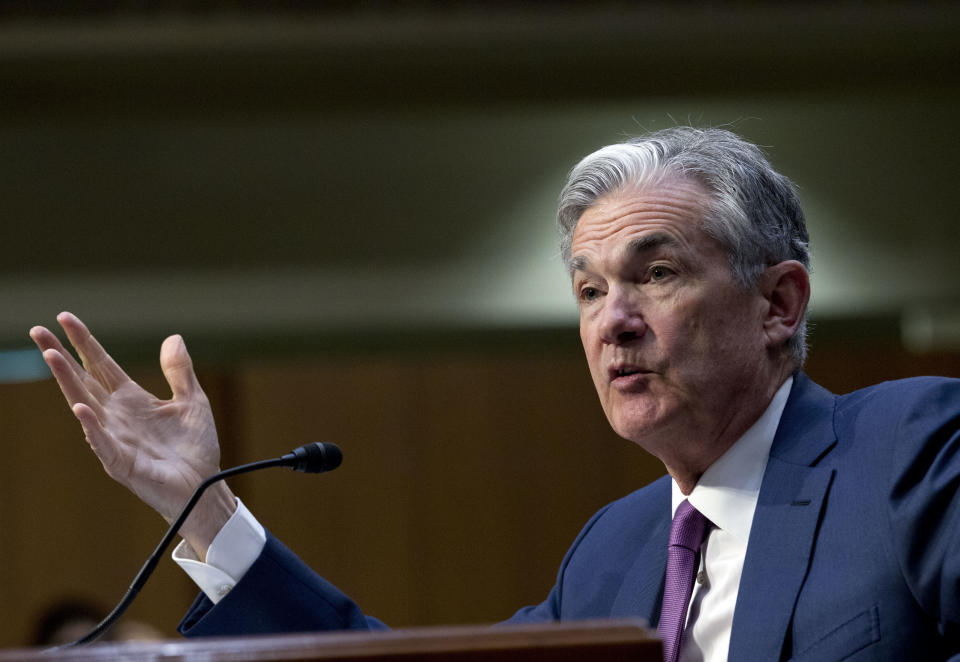POWELL: There is 'good reason' to expect the U.S. economy's strong run will continue
Federal Reserve chair Jerome Powell sees plenty of reasons the U.S. economy’s strong run will continue.
In a speech delivered before the Jackson Hole Economic Symposium on Friday, Powell said, “Over the course of a long recovery, the U.S. economy has strengthened substantially… With solid household and business confidence, healthy levels of job creation, rising incomes, and fiscal stimulus arriving, there is good reason to expect that this strong performance will continue.”
This is Powell’s first speech before the year’s biggest meeting of monetary policy makers and economists since taking the reins as Fed chair in February.
With respect to the Fed’s actual policy moves, Powell was largely consistent with recent Fed communications suggesting the case for two more rate hikes this year remains intact.

“While inflation has recently moved up near 2 percent, we have seen no clear sign of an acceleration above 2 percent, and there does not seem to be an elevated risk of overheating,” Powell said.
“This is good news, and we believe that this good news results in part from the ongoing normalization process, which has moved the stance of policy gradually closer to the FOMC’s rough assessment of neutral as the expansion has continued. As the most recent FOMC statement indicates, if the strong growth in income and jobs continues, further gradual increases in the target range for the federal funds rate will likely be appropriate.”
Following Powell’s speech, markets were little-changed from where they were before his remarks were published with the two-year Treasury yield trading near 2.63% and the 10-year near 2.84%.
Stocks were up about 0.2% and the U.S. dollar was sliding a bit.
As some Wall Street economists had expected ahead of Powell’s speech, the Fed chair did not use this speech to make a wholesale change to the market’s view of the path of Fed policy.
Instead, Powell focused most of his remarks on two questions that he said, “regularly arise in discussions of monetary policy both inside and outside the Fed.”
The first is why the Fed isn’t more aggressive in raising interest rates with the unemployment rate well below what the Fed believes is the longer-run natural rate of unemployment (or the rate of unemployment at which inflation won’t accelerate). The second is why the Fed is tightening monetary policy amid a lack of inflation and thus risking choking off the current economic expansion.
“I see the current path of gradually raising interest rates as the FOMC’s approach to taking seriously both of these risks,” Powell said.
“While the unemployment rate is below the Committee’s estimate of the longer-run natural rate, estimates of this rate are quite uncertain. The same is true of estimates of the neutral interest rate. We therefore refer to many indicators when judging the degree of slack in the economy or the degree of accommodation in the current policy stance. We are also aware that, over time, inflation has become much less responsive to changes in resource utilization.”
Powell added that, “Readers of the minutes of FOMC meetings and other communications will know that our discussions focus keenly on the relative salience of these risks. The diversity of views on the FOMC is one of the great virtues of our system.”
—
Myles Udland is a writer at Yahoo Finance. Follow him on Twitter @MylesUdland

 Yahoo Finance
Yahoo Finance 
